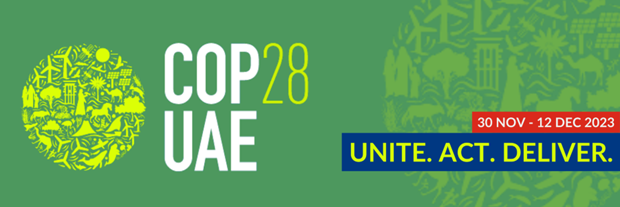Human activity has impacted the environment for many thousands of years and the use of fossil fuels has powered that impact to a new level.
We live in a world with a shifting climate in the setting of unprecedented release of greenhouse gasses. The balance of forces that make our little terrarium of a planet safe to inhabit can only tolerate so much disturbance. This problem is so vast that it can feel like efforts at course correction are futile. The tenuousness of our situation has been broadcast from the rooftop of every scientific institution worth its salt for decades and the call has now become a resounding one. The current movement is driven in large part by motivated individuals who recognize that the value of sustainability is broad and lasting while the value of the status quo is funneled into the pockets of a select group of wealthy but shortsighted individuals and corporations. There is a lot to be riled up about and we each have the responsibility to act to make change.
The good news is that change is already underway. I am here to bring you three wins in climate policy from the past year to inspire you to take up or keep up the effort to maintain this momentum toward a healthier future.
COP28: The Beginning of The End for Fossil Fuel

December 2023 brought the 28th meeting of the Conference of the Parties, referred to as COP28. COP is the annual meeting of the United Nations Framework Convention on Climate Change, in which participating parties ostensibly seek ways to minimize harmful human-caused impacts on the climate. The overwhelming presence of oil lobbyists at these meetings has been a source of much skepticism, and any mention of fossil fuels (the largest source of climate altering greenhouse gasses) has been notably absent in all past conferences.
COP28 broke this conspicuous silence on fossil fuels, opening the door to continued progress. At this conference, 196 participating countries came to an agreement on the need to transition away from fossil fuels. The deal calls for the transition to happen “in a just, orderly and equitable manner, accelerating action in this critical decade, so as to achieve net zero by 2050 in keeping with the science.” While the decision lacks enforceable commitments or requirements, and references weak and theoretical solutions such as carbon capture, it is a step away from fossil fuels. This move sends a message that the agenda of oil corporations cannot continue to dominate the discourse around our global future. In a closing speech, UN Climate Change Executive Secretary Simon Stiell stated, “Whilst we didn’t turn the page on the fossil fuel era in Dubai, this outcome is the beginning of the end.”
The decision to decrease the world’s dependence on fossil fuels has been attributed in large part to the ongoing massive social pressures from individuals and climate organizations. Next year’s conference will be held in Azerbaijan - another large oil producing nation- and we must keep up the pressure, because those with a vested interest in oil and gas profits certainly will.
Ecuadorians Choose Preservation Over Profit

Photo by Sara Kirkpatrick
In August of 2023, after years of grassroots organizing largely by Indigenous groups, including the Waorani community, the people of Ecuador voted to pass a national referendum halting current and future oil drilling in the biodiverse rainforest of Yasuní National Park. There is some precedent for national level votes limiting expansion of oil drilling, including a ban on oil drilling in territorial waters off Costa Rica in 2010. This landmark vote in Ecuador, however, is unique in its effect on the existing fossil fuel infrastructure. The referendum requires the government to dismantle existing oil infrastructure in the area and engage in reforestation efforts. This outright removal of oil extraction efforts deals a major blow to the oil industry, which is desperately seeking ways to remain relevant.
Although Ecuador has its own unique social and political landscape, this historic move carries a valuable lesson. It demonstrates that the political will exists to make substantive moves prioritizing conservation over exploitation. The hard work of these motivated Ecuadorian citizens has potential to ripple into other climate wins, and serves as a reminder that your voice and your vote matter.
The High Seas Biodiversity Treaty

Photo by Sara Kirkpatrick
Carbon sink is the term used for a substance or process that absorbs more carbon dioxide from the atmosphere than it releases. As carbon dioxide is a major contributor to atmospheric warming, these sinks play an important role in global thermoregulation. When you think about natural carbon sinks, most people will immediately think of lush forests. Interestingly, however, Earth’s most effective and largest carbon sinks are, in fact, our oceans. Healthy marine ecosystems are vital to the carbon cycle, and play a major role in regulation of global temperatures. About 70% of the planet is covered by ocean water, and only about one third of that expanse lies within national boundaries.
Nations are individually responsible for conservation and management of aquatic resources within their own boundaries, but the “high seas” fall beyond national jurisdiction. As such, these open waters have little to no regulation, and have been exploited, overfished, and polluted with no existing infrastructure to maintain them. It is a straightforward example of the tragedy of the commons.
In 2023, after nearly twenty years of negotiations, the United Nations agreed upon a legally binding treaty to protect the high seas and marine biodiversity. The treaty recognizes the role of ocean health in climate change mitigation. It includes regulations on use of resources and pollution in these areas as well as mechanisms for enforcement and dispute resolution.
Because nothing is simple, the job is not yet done. Sixty countries must sign and ratify the treaty before it becomes international law. As of this writing, 86 countries have signed. Palau submitted the first ratification in January of 2024 followed shortly thereafter by Chile. No other countries have yet ratified the treaty.
Ratification is still necessary to move this momentous effort fully into the “climate wins” category. This effort is a critical step toward “30x30”, an international goal to conserve 30% of marine and terrestrial habitat by 2030. Even with ratification of this treaty, 30x30 will be challenging. Without the treaty it is hard to foresee a viable path. The goal is for the treaty to “enter into force” in 2025 and the more public attention it receives, the more likely it is to occur.
These hopeful stories demonstrate that climate action takes many forms and is within reach for each of us. Even by reading this article, you are making a choice to be more informed. If any part of you wants to be more involved, find a way. Stay up to date on policies which you can advocate for or oppose, join an organization where you can collaborate with others, and don’t forget to get outside and enjoy the wonderful world we are fighting for!